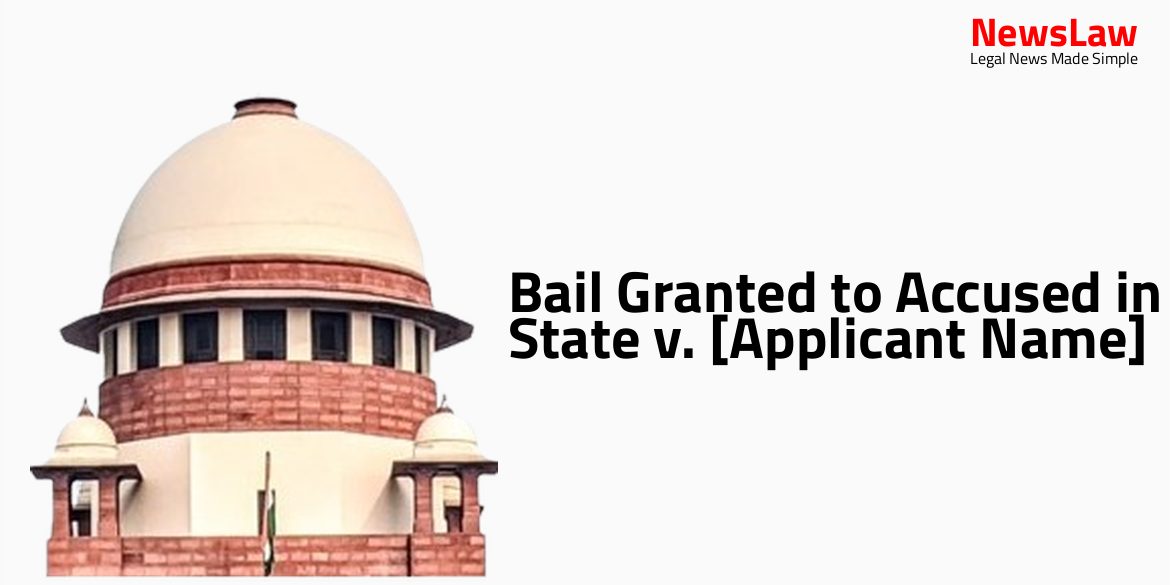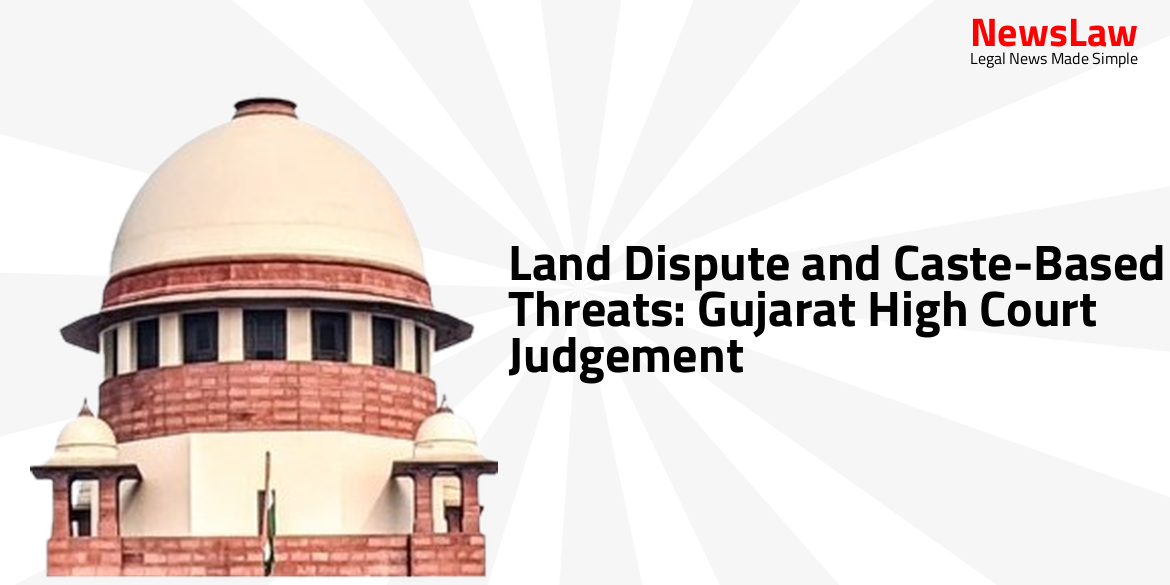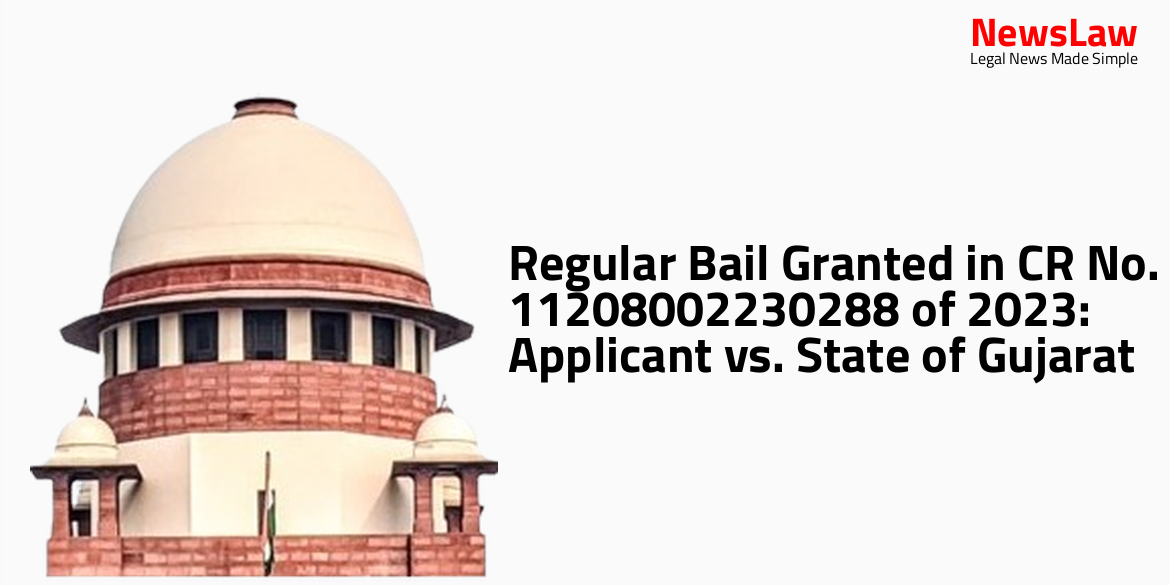In a significant ruling, the Gujarat High Court has quashed the detention order under the Gujarat Prevention of Anti-Social Activities Act, 1985. The case involved a challenge by the petitioner against the District Magistrate, Dahod’s decision to place them under preventive detention as a ‘bootlegger’. The Court’s decision highlights the importance of timely action in preventive detention cases and the need for a ‘live and proximate link’ between the grounds of detention and the purpose of detention. Stay tuned for more insights on this judgment.
Facts
- Challenge to the detention order dated 03.11.2023 under Article 226 of the Constitution of India.
- The petitioner seeks quashing of the detention order placing them under preventive detention.
- The detention order was passed by the District Magistrate, Dahod, under the Gujarat Prevention of Anti-Social Activities Act, 1985.
- The petitioner has been detained as a ‘bootlegger’ as defined under section 2(b) of the Act.
Arguments
- Learned advocate for the detenue argues that the illegal activity alleged has no connection to the maintenance of public order and is at most a breach of law and order.
- There is a lack of relevant and cogent material on record linking the detenue’s alleged anti-social activity to public order disturbance.
- The advocate emphasizes that the criminal cases involving the detenue did not significantly disrupt the normal societal functions or pose a threat to public order.
- The advocate contends that the registration of offenses under the Prohibition Act alone is insufficient to justify the detenue’s detention under the Act.
- AGP for the State supported the detention order passed by the authority.
- Sufficient material and evidence was found during the investigation to support the detention order.
- Detaining authority rightly passed the order of detention considering the facts of the case.
- Detention order deserves to be upheld by the Court.
- The subjective satisfaction of the detaining authority was questioned as the alleged offences may not impact public order as required under the Act.
- Other relevant penal laws were deemed sufficient to address the situation.
- Allegations against the detenue may not qualify under section 2(b) of the Act.
- Material is required to show that the person poses a threat to society and disturbs public order to detain them.
- No concrete evidence on record to prove that the detenue’s actions are dangerous to public order.
- The detenue was granted regular bail by the Court, indicating a lack of consideration by the Detaining Authority to cancel bail as a measure to prevent the detenue’s activities.
- Delay of over two months in passing the detention order after the detenue was granted regular bail in the second offence.
Analysis
- Preventive detention is designed to protect society by intercepting potential harm before it occurs.
- It is not meant to punish for past actions but to prevent future harm.
- It is crucial for the detaining authority and executing authorities to act promptly to prevent the detainee from committing any harmful actions.
- Any delay in executing the detention order can render the order ineffective and defeat the purpose of preventive action.
- Recent decisions of the Supreme Court emphasize the importance of prompt action in preventive detention cases.
- Unreasonable and unexplained delay in detaining a person can invalidate the detention order.
- If the detenue is a menace to society, seeking cancellation of bail or appeal to a higher court is more appropriate than relying on preventive detention laws.
- The Court notes a significant delay in passing the detention order after the petitioner was granted bail in a previous offense.
- The Supreme Court has highlighted the importance of timely action in preventive detention cases to maintain the efficacy of such measures.
- Delay between proposal and passing of detention order snaps ‘live and proximate link’.
- Unexplained delay casts doubt on detaining authority’s subjective satisfaction.
- Detaining authority overlooked crucial fact of detenu being released on bail in criminal cases.
- Lack of contemporaneous material supporting detaining authority’s conclusion on public health impact.
- Indifference of detaining authority in promptly passing detention order after receiving proposal.
- Absence of FSL report and unexplained five-month delay in passing the detention order.
- Detaining authority’s unawareness of detenu’s bail release in both cases, not disclosed by sponsoring authority.
- Importance of ‘live and proximate link’ between grounds of detention and purpose of detention.
- Delay in arresting detenu after detention order raises questions on reason for delay.
- High Court’s failure to address the issue of unexplained delay in passing detention order despite it being raised.
- In the absence of any material on record, the subjective satisfaction of the detaining authority is vitiated.
- The simplicitor registration of FIR(s) alone does not have any nexus with the breach of maintenance of public order.
- No other relevant and cogent material existed for invoking power under section 3(2) of the Act.
- The petition is allowed, and the impugned order of detention dated 03.11.2023 is quashed and set aside.
- The detenue is ordered to be set at liberty forthwith if not required in any other case.
- Rule is made absolute, and direct service is permitted.
Case Title: SURESHBHAI @BHURIYO @BHURIYABHAI VINODBHAI RATHVA Vs. STATE OF GUJARAT
Case Number: R/SCA/21890/2023



